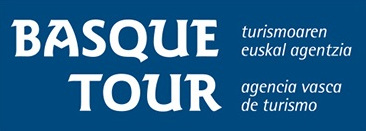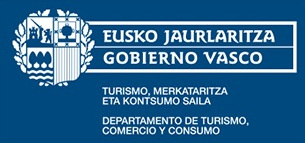Principles
In this second edition, the Code has been restructured from 8 principles to 6 principles:
1.I will respect tourists and residents. Their habits and traditions. Their fun and their peace and quiet.
There are as many traditions, ways of life, social practices, laws, or cultural habits as there are places in the world. Knowing and respecting our own and those of the people who visit us is the easiest way to make Euskadi much more than just a destination.
Respect for the tourist. Even if our cultures live thousands of kilometers apart. Even if our beliefs speak different languages, there is no language more universal than empathy.
As local tourism agents, we commit not only to respecting our visitors but also to learning about their preferences and needs to better understand and meet their expectations.
And respect for those who live here. For our daily lives and our nights. For our work and our rest. For our laws, customs, and traditions. Let the way people visit us not change the way we live.
2. I will stand for equality in diversity. Whoever you are, whatever you’re like.
The blue of our sea doesn’t care about the color of your skin. The infinite past of our towns doesn’t care about your age. The diversity of our landscapes is indifferent to your gender identity. Our gastronomy, filled with kitchens we’ve turned into temples, doesn’t care about your religion. Our land doesn’t care how unique your abilities are, who you are, what you believe in, who you love, how you hear, see, feel or walk… And neither do we. If traveling opens the mind, Euskadi is a giant open door to breaking down prejudice. We welcome you with open arms and open minds.
3. I will protect our environment, landscapes and natural resources.
No matter how fierce our sea may seem. No matter how green our green is. No matter how deep our roots go. No matter how high our mountains rise. No matter how infinite our coastline feels. No matter how ancient our villages and traditions are. No matter how much we are Euskadi, we must continue to be so. Our land is precious—and vulnerable. We must protect the environment for future generations.
As tourism agents, we commit to saving natural resources, minimizing the footprint of our activity, and spreading the flow of visitors over time.
As a guest of this land, take memories that leave no trace. That will be the best path for others to find their way back to what will always be their home.
4. I will support, use and enjoy local produce and culture.
Here, gastronomy takes the shape of pintxos and stars. Sports sound like stone, wood, and txapa. Art keeps wrestling with iron and titanium. Modernity still speaks an ancestral language. Fashion, culture, festivals, and traditions… The local remains our universal symbol. Preserving it means holding on to who we are, so we can keep being.
Now that we eat the same everywhere, buy the same everywhere, see the same shop windows and hear the same music everywhere, it’s time to remember: we are not just any place. Support local products from our local businesses. There is no better souvenir than ancient culture and craftsmanship. Eskerrik asko!
5. I will safeguard the tourist assets recognised by UNESCO as World Cultural Heritage.
Iron giants, ancient caves, archaeological sites, prehistoric sanctuaries, enchanted forests, magical paths, coastal geoparks, biosphere reserves, impossible sculptures, unique buildings… Euskadi is home to tourist treasures recognized by UNESCO as World Cultural Heritage Sites.
Preserving and protecting them is not just a duty — it’s the pride of being able to keep enjoying the postcards we live in.
6. I will take care of the tourist trade and the people who work in it.
Someone once said that people will remember you for how you made them feel. And if Euskadi holds such a special place in the emotional memory of those who visit, it’s thanks to the people they meet. Tourism professionals who, beyond being guides, hoteliers, information staff or shopkeepers, are the best hosts of this small but great land.
They are our main tourism asset. That’s why it’s our duty to protect their rights, support their training with tools and continuous learning programs, create the best conditions and facilities for businesses, invest in the right human capital, provide excellent infrastructure, ensure the economic sustainability of the sector, and respect their livelihoods by paying fair prices for their products and services.
Qualities that don’t appear in the picture, but tell the real story behind every experience.

HOW TO PARTICIPATE?
If your tourism entity is interested in participating in the project, send us your application and we will contact you as soon as possible.




